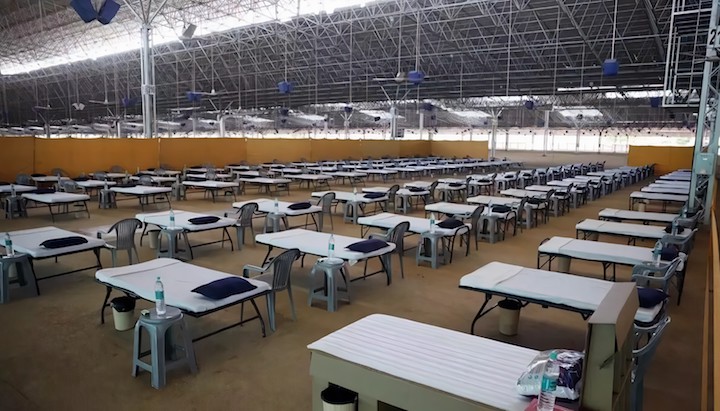|
From:TheBahamasWeekly.com Opinions
Opinion COVID-19 Pandemic: India’s response and global strategy Coronavirus cases are nearing 20 million globally with around 8,00,000 deaths. Hundreds of thousands of COVID-19 cases are still being reported daily from all corners of the world including from the Caribbean region and South Asia, despite the best efforts of countries to curb this pandemic. India’s response to COVID-19 has been timely, effective, and comprehensive. Contrary to the perception that India has a high cumulative figure of COVID cases, the ratio of positive cases and deaths per million remain much lower to the global average. India has shown a robust recovery rate of over 65% with more than 1 million recoveries. Active cases remain around 33%, while the fatality rate at 2.1% is lower than the world average of over 5%. All this has been done within the framework of a democratic, federal polity through extensive consultation and coordination at all levels that called for an extraordinary political and administrative effort. More than a million stranded Indians have already returned safely under the world’s largest repatriation exercise and 50 Indians have also returned from the Bahamas with the efforts of the Indian diaspora and the support provided by the US Embassy in the Bahamas. India’s Strategy: India’s COVID strategy rests on three pillars of testing, contact tracing, and strict containment measures. India had taken early and decisive steps in the initial stages of the pandemic, which ensured a low death and high recovery rate. Indigenously developed digital tools such as ‘Aarogya Setu’ app are being widely used to predict emerging hotspots in India. COVID testing has been scaled up to 0.65 million tests per day with an aim of daily 1 million tests in the next few days. India has conducted more than 20 million tests so far, making it one of the largest testing exercises undertaken anywhere in the world. COVID testing kit price has also fallen substantially with the ramping up of domestic manufacturing capacity. India’s tracing strategy also involves widespread serum surveys to evolve a comprehensive picture of the pandemic situation in India. Indian labs have also started coordinating data and clinical management experience to study long term side effects and recovery complications in COVID-19 patients and evolve appropriate medical protocols and rehabilitation programs. Since the start of the pandemic, India has also scaled up its health infrastructure, including hospital beds and Intensive Care capacity. Innovative methods are being adopted on war-footing as community centers and hotels have been converted to COVID care facilities. Oxygenation equipment and ventilators have been procured in large volumes and the armed forces, public and private sectors, non-governmental and voluntary sectors have pooled resources and facilities. As an example, a 10,000-bed facility was created in Delhi within the space of a week in a joint government-civil society operation. The supply of PPEs and masks in India was not adequate in the early stages of the pandemic. But, in a few months, India has become a PPE kit manufacturing hub by re-purposing manufacturing units and stepping up output. Our health-care professionals, doctors, nurses, paramedics, and technicians have held the line in the face of daunting odds and at personal risk to themselves. The pandemic has also unleashed an unprecedented humanitarian and economic crisis that India has worked to tackle proactively. To protect both lives and livelihoods, India has launched food security projects worth US$ 14 billion in March 2020 that aim to ensure nutrition for the most vulnerable sections of the society. India has also launched a US$ 300 billion stimulus package in May, which includes a range of policy reforms and financial support programs to aid economic growth and empower citizens amid the pandemic. International Cooperation: It was not just domestically that India expeditiously ramped up its efforts. India’s timely supply of medicines and other medical equipment to more than 150 countries were in response to an urgent call for tackling the global pandemic. The medical consignments have already arrived in most of the Caribbean and Latin American countries and are expected to arrive in the Bahamas in short order. The export of these medicines is now fully opened up as part of our commitment to keeping global supply chains open and free. Given the massive ramping up of PPE kits production, it should now be possible for India to also export testing kits to interested countries. Premier Indian medical research institutions have also been providing clinical management guidance and expertise through the virtual mode to hospitals in partner countries and over 800 medical professionals have already participated globally. Invitations have also been extended to the relevant stakeholders in the Bahamas for participation in such online courses. At least two COVID vaccines being developed by Indian companies have reached the human trial stage. Once developed, India will be happy to share its benefits with other countries, including in the Caribbean region, to contain the COVID-19 crisis. Even in these difficult times, India’s role as a dependable and responsible country in reaching out to its friends around the world has been widely acknowledged. India is being seen as a bridge between the developed and developing world in the healthcare and pandemic response space. It has facilitated the two-way flow of information, products, and expertise. Global crises call for global responses. The COVID crisis has highlighted the fact that no country, howsoever powerful, can tackle this crisis alone. What is required is global cooperation in knowhow and resources, research, and information sharing. India has tried to do this as best as it could and would continue to assist countries across the world in containing the COVID pandemic. India hopes that this crisis will soon be behind us and we will emerge united and stronger from it, in the spirit of the teachings of Indian ancient texts which promote ‘Vasudheva Kutumbakam’ or ‘The World is one family’. Prathit Misra is Second Secretary at High Commission of India, Kingston
|
